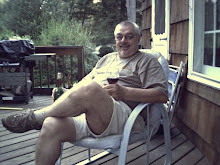Friday, January 9, 2009 3:12 AM
By Mark Niquette
45 PERCENT IN FRANKLIN COUNTY
The Columbus Dispatch
 Nearly half of all Franklin County voters in the Nov. 4 election -- 45 percent -- cast an early absentee ballot by mail or in person at Veterans Memorial, the highest number in the state, records show.
Nearly half of all Franklin County voters in the Nov. 4 election -- 45 percent -- cast an early absentee ballot by mail or in person at Veterans Memorial, the highest number in the state, records show.Statewide, about a third of all Ohio voters used an absentee ballot, which almost doubled the previous record number of absentee votes cast in a state election and helped ease lines at the polls Election Day.
Other key findings from official county results collected by Secretary of State Jennifer Brunner's office and obtained by The Dispatch:
• About 187,000 paper ballots were cast in Franklin and the 52 other counties using touch-screen voting machines, which is 5.5 percent of the total votes cast in those counties.
• Touch-screen counties used only 11 percent of the 1.7 million ballots they printed at Brunner's direction, or $3.70 for every paper ballot cast. Brunner is reimbursing those counties about $693,000 for their costs.
• A record 206,000 provisional votes were cast statewide, and 81 percent of those ballots were counted.
Brunner asked counties to provide supplemental information about absentee ballots and other items as part of their official canvass after the Nov. 4 election.
Records show that 1.7 million absentee votes were cast out of 5.8 million in Ohio, or 30 percent, including civilian and military and overseas ballots. The county rates ranged from 45 percent in Franklin County to 12 percent in Wayne County.
This was the first presidential election since the state passed "no-fault" absentee voting in 2005, and both elections officials and campaigns pushed the new option as a way to ease congestion at the polls and lock down votes of supporters.
The strategy worked; although some precincts had lines when they first opened, most were relatively slow after the initial rush and no significant waits were reported in most areas -- one of the major problems in the 2004 election.
Still, nearly 28,000 absentee ballots statewide were not counted because they were turned in late or for other reasons, records show.
Elections experts also have expressed concerns about the number of provisional ballots, which are cast by voters who move and don't update their registrations or whose names otherwise don't appear in the poll books.
The idea is to provide a fail-safe mechanism for valid voting because the ballots are held for 10 days to confirm eligibility. But experts say provisional ballots can become a target for postelection challenges and that qualified voters should be casting regular ballots.
There were 47,500 more provisional ballots cast in the Nov. 4 election compared with 2004, led by an additional 13,113 ballots from Franklin County, records show. A review is under way to determine the reasons those ballots were cast.
The rate of valid provisional ballots in the Nov. 4 election ranged from 100 percent in Monroe County to 56 percent in Brown County.
Paper ballots in touch-screen counties have been controversial for a year. Brunner required them after failing to get support to scrap all touch-screens in favor of optically scanned paper ballots after a study she commissioned in 2007 concluded the systems were substandard.
She argued that the paper ballots are a needed backup if machines break down and to help process long lines at the polls.
But county officials argue that they are too expensive for the number of voters who use them and essentially force counties to operate two election systems, which adds to the cost and delays the tabulation of results.


